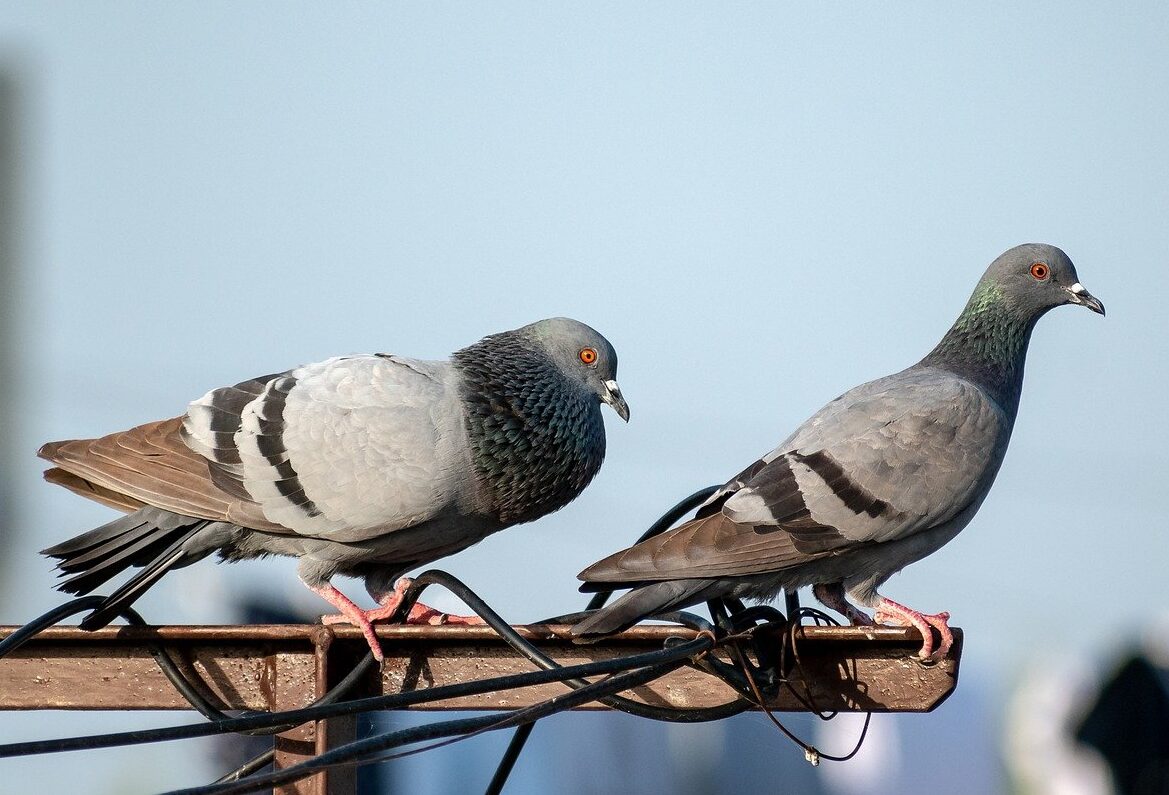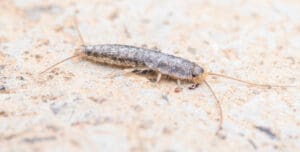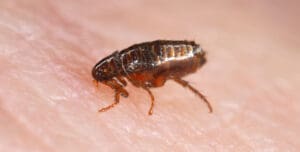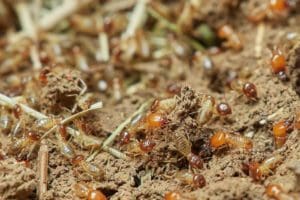

The Garden State is populated by many beautiful birds, but unfortunately, a few species can sometimes become unexpected pests. Effective bird control in Bergen County is crucial to managing these avian visitors and protecting your property. Read on for expert tips on bird exclusion in Bergen County.
Understanding Bergen County Birds
Common Bergen County bird pests include house sparrows, pigeons, starlings, and Canadian geese. House sparrows are small, brown, and gray with a stout beak. They frequently invade eaves, vents, and air conditioning units to build nests. Their aggressive behavior can lead to damage of insulation and wiring. Pigeons, recognizable by their gray feathers with iridescent necks and white tail bands, prefer nesting on ledges, rooftops, and building alcoves. Their droppings can cause structural damage and pose health hazards. Starlings are black with an iridescent sheen and are known for roosting in large flocks in trees or on building ledges. Their nesting and droppings can clog gutters and vents. Canadian geese, large with black heads and necks and white under-chins, are commonly found around bodies of water and on lawns or golf courses. Their droppings create unsanitary conditions and are a nuisance. Each of these birds can disrupt property and present health risks due to their nesting habits and droppings.
Identifying Signs of a Bird Infestation
Identifying signs of a bird infestation involves observing several key indicators. One of the most noticeable signs is the presence of bird droppings, which can accumulate in large quantities around entry points, ledges, and rooftops, creating unsightly and potentially hazardous conditions. Nesting materials, such as twigs, leaves, and feathers, often found in gutters, vents, and under eaves, also signal an infestation. Additionally, you might hear persistent bird calls or chirping, particularly around nesting sites. Physical damage, such as clogged gutters, broken vents, or disturbed insulation, often results from birds’ nesting activities. Unusual wear and tear on building surfaces or equipment can also indicate their presence. Lastly, finding feathers, eggs, or even dead birds can confirm an infestation.
Preventive Measures for Bird Control in Bergen County
Preventing bird infestations revolves around taking the following steps to make your property less inviting to birds:
- Seal Entry Points: Inspect and seal any gaps or openings in roofs, vents, and eaves to prevent birds from entering and nesting.
- Install Bird Deterrents: Use bird spikes, netting, or visual deterrents like reflective tape or decoys on ledges and rooftops to discourage birds from landing.
- Maintain Cleanliness: Regularly clean areas prone to bird droppings and nesting materials to make the environment less inviting.
- Secure Trash and Food Sources: Keep outdoor trash cans covered and clean up food spills to avoid attracting birds searching for easy food sources.
- Trim Vegetation: Keep trees and shrubs well-trimmed to reduce potential nesting sites near buildings.
- Use Repellents: Apply bird repellents or use ultrasonic devices that emit sounds to deter birds from frequenting the property.
- Regular Inspections: Conduct routine inspections of the property to identify and address any potential bird entry points or nesting areas promptly.
- Professional Assistance: Consult pest control experts for effective bird-proofing solutions and ongoing monitoring if the infestation is severe.
Navigating Legal Considerations
In Bergen County, wildlife protections and rules regarding birds are guided by both state and federal regulations. The New Jersey Division of Fish and Wildlife oversees bird conservation, implementing protections for native and migratory species. Under the New Jersey Endangered and Nongame Species Conservation Act, it is illegal to harm or disturb threatened or endangered bird species, such as the Peregrine Falcon or the Eastern Screech Owl, without proper authorization.
Federal protections under the Migratory Bird Treaty Act (MBTA) also apply, making it unlawful to capture, kill, or possess migratory birds, their nests, or eggs without a permit. This includes common species like starlings and pigeons, which are protected during their nesting periods. The MBTA aims to preserve bird populations and their habitats across the U.S.
Additionally, local ordinances may have specific rules for managing bird populations, especially in urban areas where birds can cause significant issues. Property owners must balance effective pest control with compliance to ensure they do not violate wildlife protection laws.
Humane Bird Control Methods
Home and business owners in Bergen County can employ several humane methods for pigeon control and general bird exclusion while adhering to federal and local regulations. First, they can use physical barriers like bird netting or spikes to prevent birds from accessing ledges, eaves, and other nesting sites. These barriers are effective at deterring birds without causing harm. Additionally, installing visual deterrents, such as reflective tape, scare balloons, or decoys, can make areas less attractive to birds by creating an environment they perceive as threatening. Regular cleaning of areas prone to bird droppings and nesting materials helps to reduce the appeal of the property. For properties with large outdoor spaces, using bird-friendly repellent gels or ultrasonic devices that emit sounds may help in deterring birds without causing them harm. It’s important to ensure that any measures taken comply with wildlife protection laws, including avoiding harm to protected species. Consulting local wildlife experts can provide additional guidance on implementing these humane strategies effectively.
Bird Pest Control Near Me in Bergen County
Professional bird control in Bergen County offers advanced solutions for managing bird-related issues, employing techniques and equipment not typically available to everyday property owners. These services include comprehensive site assessments to identify bird entry points and vulnerabilities, followed by the installation of specialized deterrents such as custom bird netting, high-frequency sound devices, and advanced visual deterrents. Professionals also use exclusion methods like sealing entry points and integrating preventive measures to ensure long-term effectiveness.
These methods are superior to DIY approaches because they are tailored to the specific needs of each property and comply with local and federal wildlife regulations. Professionals have access to industry-grade products and expertise that ensure thorough and humane bird management, addressing complex infestations more effectively than standard DIY solutions.
To find the best company for your property, look for providers with a strong reputation, guaranteed services, positive customer reviews, and experience in both residential and commercial bird control. Ensure they offer comprehensive assessments and customized solutions, and check that they are knowledgeable about wildlife protection laws. Recommendations from local businesses or property managers can also help identify reputable and effective bird control services.
Bird control is essential for maintaining the integrity and safety of your property. Whether you’re looking for residential pest control or commercial pest control solutions, our team at Twin-Boro is equipped with the expertise and advanced methods to address your specific needs. Don’t let bird infestations disrupt your environment- contact us today to explore customized strategies and ensure a bird-free space. Trust Twin-Boro for reliable, professional bird control in Bergen County.






